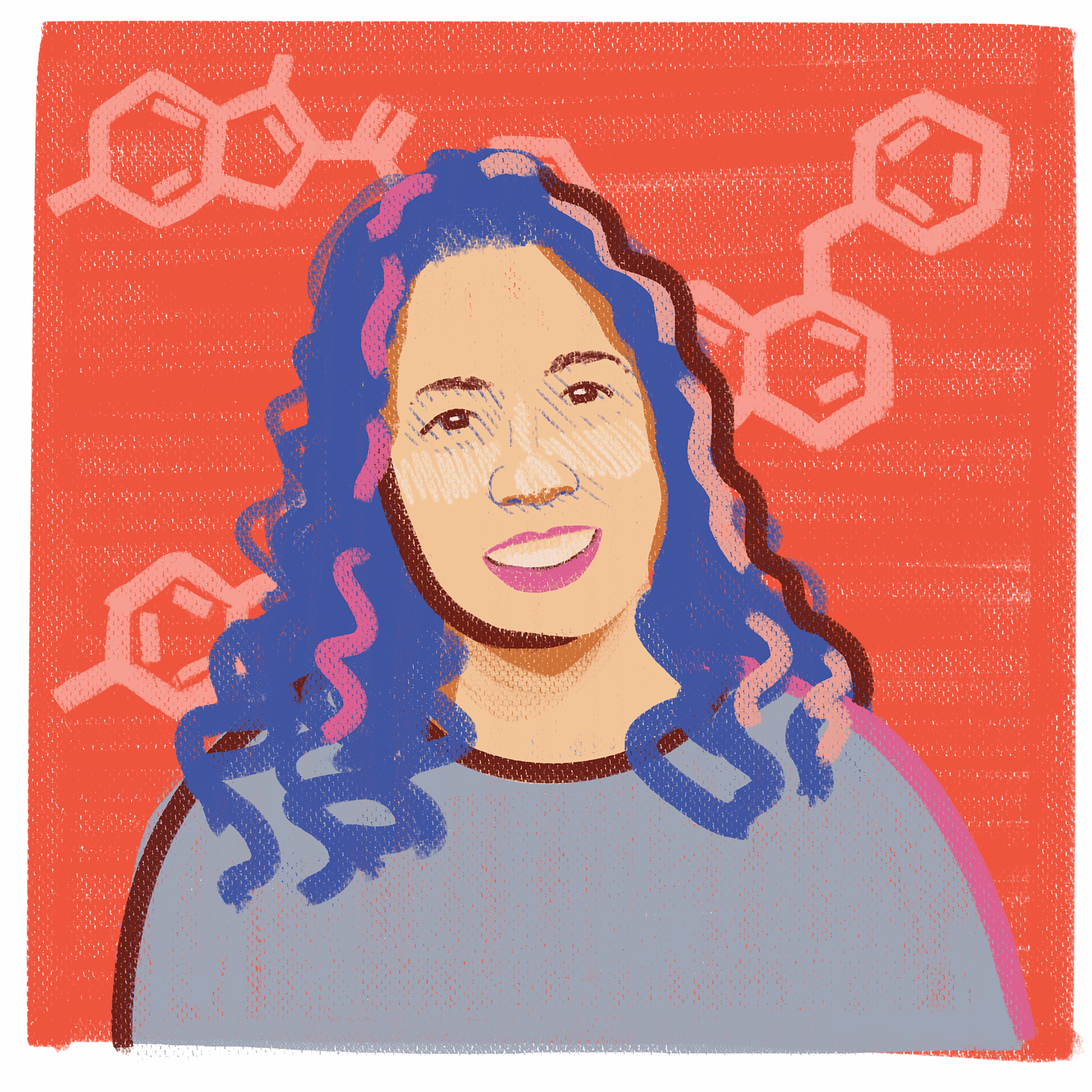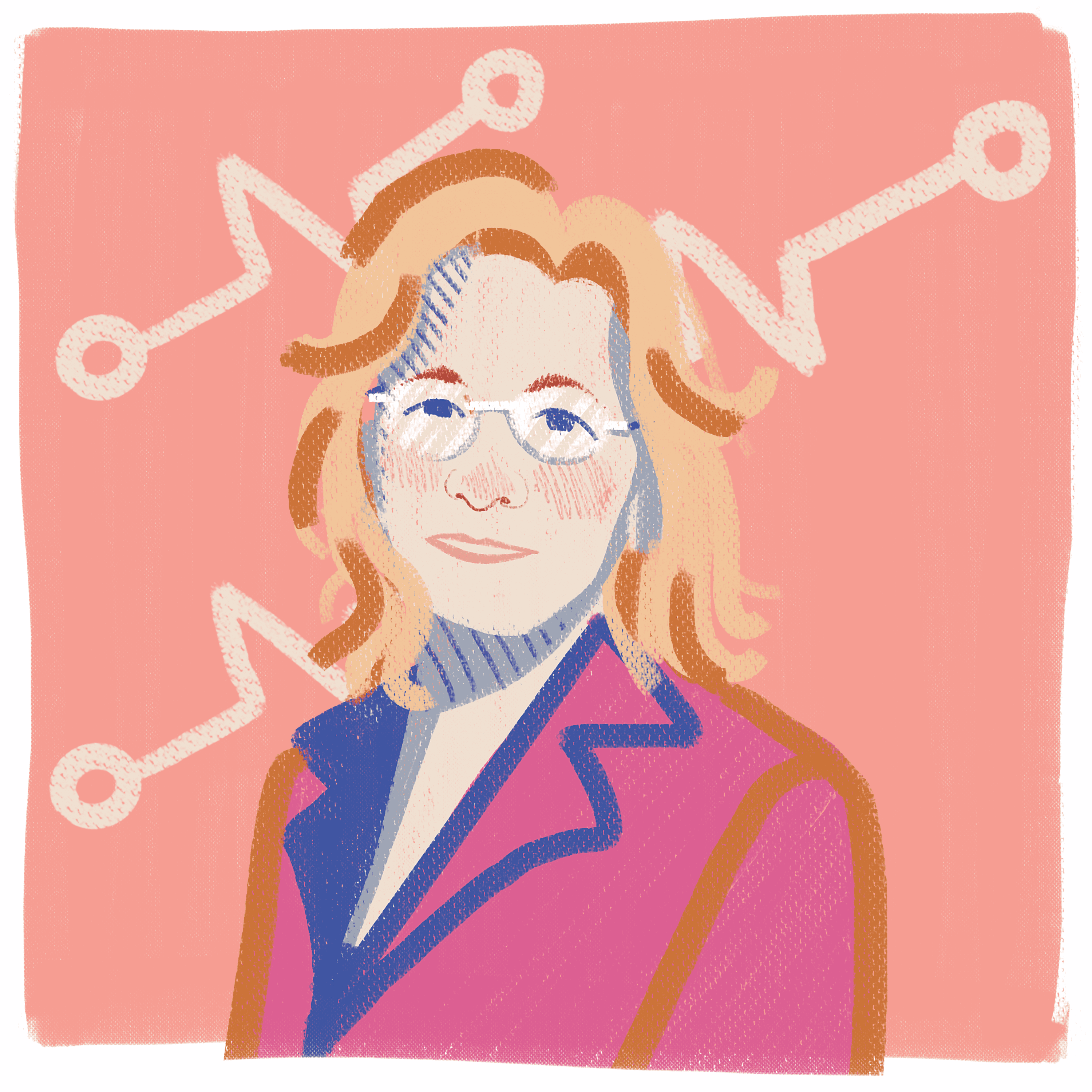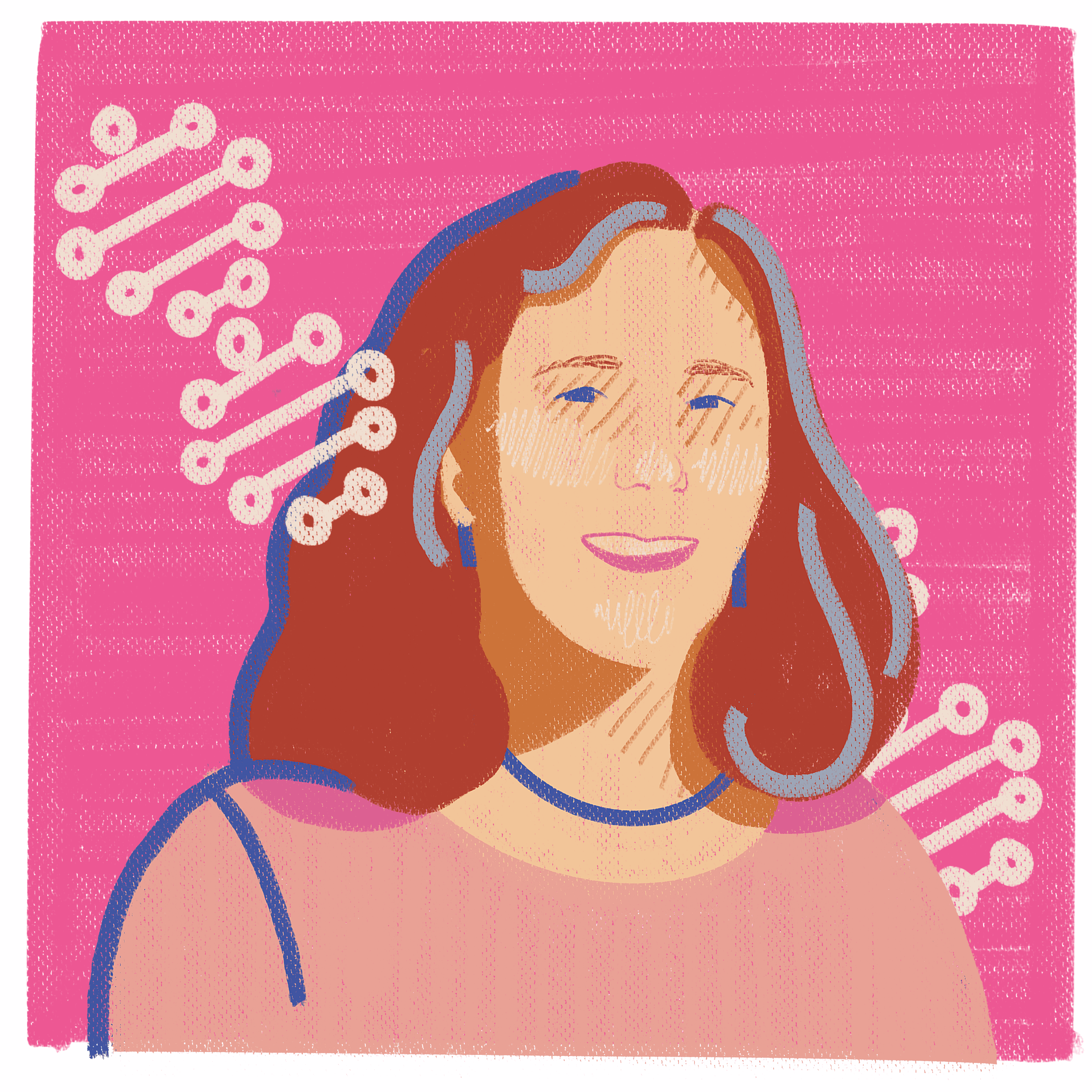Professor Raquel Guimarães Jacob

Raquel Jacob has a degree in Chemistry with Technological Attributes from the Chemistry Institute, and a Teaching Degree in Chemistry from the Federal University of Rio Janeiro’s (UFRJ) School of Education. She holds a Masters in Sciences/Organic Chemistry from UFRJ and a PhD in Sciences/Organic Chemistry from the University of São Paulo. Later on, she took her post-doctorate in the Federal University of Santa Maria’s Department of Chemistry.
Her research interest is Clean Organic Synthesis, from the development and application of semisynthetic compounds and organochalcogen compounds (organic compounds which contain at least one element from the calchogen group) using clean methods. Raquel, then, acts since 1999 in research projects directed at this field, like Desenvolvimento de metodologias Sintéticas que Permitam Agregar Maior Valor Comercial ao Óleo Essencial de Citronela (1999-2000), o projeto Modificação Química de Óleos Essenciais project (2001), Síntese, ciclização e reações imino-diels-alder de citroneliliminas e de β-tioorganoilcitroneliliminas, em meio livre de solvente (2007), Aproveitamento das folhas residuais da cadeia produtiva do eucalipto para a produção de óleos essenciais na Metade Sul do Rio Grande do Sul (2007), Estudo da adição de íons calcogenolatos às citroneliliminas (2009), Metodologias Sintéticas Limpas para a Modificação Química de Óleos Essenciais e Obtenção de Calcogenoterpenos (2010), Obtenção e Aplicação Sintética de Terpenos Contendo Grupos Organocalcogênio (2011), Síntese e Atividade Biológica de Organocalcogênios (2011), and Síntese, Reatividade e Atividade Biológica de Novos Compostos Organocalcogenados (2014 e 2017).
Raquel took an interest in these areas when she was a professor at UNIJUÍ/RS. At this institution, she had the opportunity to contribute to the creation of an economic alternative for small farmers in the Northeast of the state of Rio Grande do Sul, by obtaining semisynthetic compounds from aromatic and medicinal plants’ essential oils. Later on, her interest increased when she joined UFPEL’s LASOL Research Group (Laboratory of Clean Organic Synthesis), one of the pioneers in the implementation of Green Chemistry in organic synthesis in Brazil.
To develop these researches, Raquel got a lot of support and funding, like FAPERGS’s Auxíilo recém-Doutor (2000), edital de Apoio aos Polos de Inovação e Tecnologia (2007), CNPq’s Universal Public Notice (2007, 2009, 2011, 2014), FAPERGS’s Public Notice (2009), Programa Pesquisador Gaúcho (2010 and 2017), Support Program for Emerging Centers – PRONEM (2011). In addition, she is a Level 1 (PQ-1D) CNPq fellowship holder in Productivity in Research (2020-2023).
In the University, Raquel promoted the improvement in the quality of Chemistry Teaching by creating the Industrial Chemistry Course, the first in Brazil completely directed at sustainability, which she led for 11 years, since it was created. With the course, 16 new professors from different segments of Chemistry were hired, and a new 1.500 m² building was built with 4 classrooms, eight laboratories for teaching and one for lesson planning, as well as several small, medium and large equipment. This new building, built to house the Industrial Chemistry Course, expanded physical spaces and improved conditions for Chemistry teaching for all UFPel students, both undergraduate and graduate. Indirectly, the improved in physical space and human resources enabled the increase in the number of undergraduate and graduate programs in the Center for Chemical, Pharmaceutical and Food Sciences, through the new hired professors.
Raquel also participated, with the LASOL research group, in the inclusion of Environmental Education in UFPel Chemistry programs (Industrial, Bachelor’s and Teaching degrees), by
teaching Green Chemistry, connecting teaching, research and extension, and contributed to the consolidation and internationalization of the LASOL group and UFPel’s Graduate Program in Chemistry (PPGQ). Her interaction with researchers from LASOL and other national and international institutions allowed for the publication of 139 scientific articles, 4 book chapters, the request of 18 patent application filings, advising 13 Masters, 5 PhDs, and 37 IC or IT fellowship holders, as well as supervising 7 post-doctorates.
Among the published scientific articles, she highlights the invitations to participate in the special edition of Brazilian Women in Chemistry, from the Journal of The Brazilian Chemical Society in 2019, and the special edition Catalysis in Latin America, from ChemCatChem in 2023, which show the recognition of the research made by the LASOL Group.
As professor and researcher, Raquel was invited to be paranymph of the Industrial Chemistry course and Bachelor’s in Chemistry program, patroness of the Industrial Chemistry Course and Associate Direction of SBQ’s Organic Chemistry division in 2012.
For the professor, “the Exact Sciences need more diversity of ideas, which is beneficial for society, not only because that allows for the development of new knowledge in the area, but it also contributes to disseminating the importance of Science among all sections of the population, showing it leads to better life quality.”


